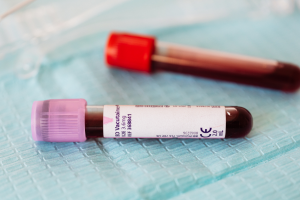Could effective iodine-131 half-life be extended by lithium carbonate in Graves’ disease patients: Results from a retrospective analysis
DOI:
https://doi.org/10.17305/bb.2024.10659Keywords:
effective 131-I half-life, lithium carbonate, Graves’ disease, radioactive iodine therapy, hyperthyroidismAbstract
The effective iodine-131 (I-131) half-life (EHL) plays an important role in the evaluation of radioactive iodine therapy for Graves’ disease (GD) patients. It has been observed that the EHL of GD patients varies after taking lithium carbonate. The purpose of this study is to investigate whether EHL can be extended and to identify the predictive factors associated with this outcome. The clinical data of 225 GD patients were retrospectively reviewed. Patients were divided into two groups based on whether the ΔEHL was ≥ 0.5 days. EHL tested after lithium carbonate was defined as Li-EHL. In the univariate analysis, age, sex, thyrotropin receptor antibody (TRAb), thyroglobulin antibody (TgAb), thyroid peroxidase antibody (TPOAb), and baseline-EHL exhibited significant differences between the two groups (P < 0.05). Cutoff values of age and baseline-EHL to predict significant EHL extension were 40.5 years and 4.85 days, respectively, as determined by receiver operating characteristic (ROC) curve analysis. Multiple linear regression analysis further revealed that the regression equation, which included age, sex, baseline-EHL, and the FT3, free triiodothyronine (FT4)/free thyroxine(FT3) ratio, was statistically significant (P < 0.05). Li-EHL positively correlated with baseline-EHL and the FT4/FT3 ratio, but negatively correlated with age. Li-EHL was also increased in female individuals. In conclusion, age, sex, baseline-EHL and the FT4/FT3 ratio were associated with Li-EHL in GD patients.
Citations
Downloads

Downloads
Published
Data Availability Statement
The datasets generated during and/or analyzed during the current study are not publicly available, but are available from the corresponding author on reasonable request.
Issue
Section
Categories
License
Copyright (c) 2024 Xuemei Gao, Binbin Wu, Qian Zhou, Yan Liu, Ruihua Wang

This work is licensed under a Creative Commons Attribution 4.0 International License.









